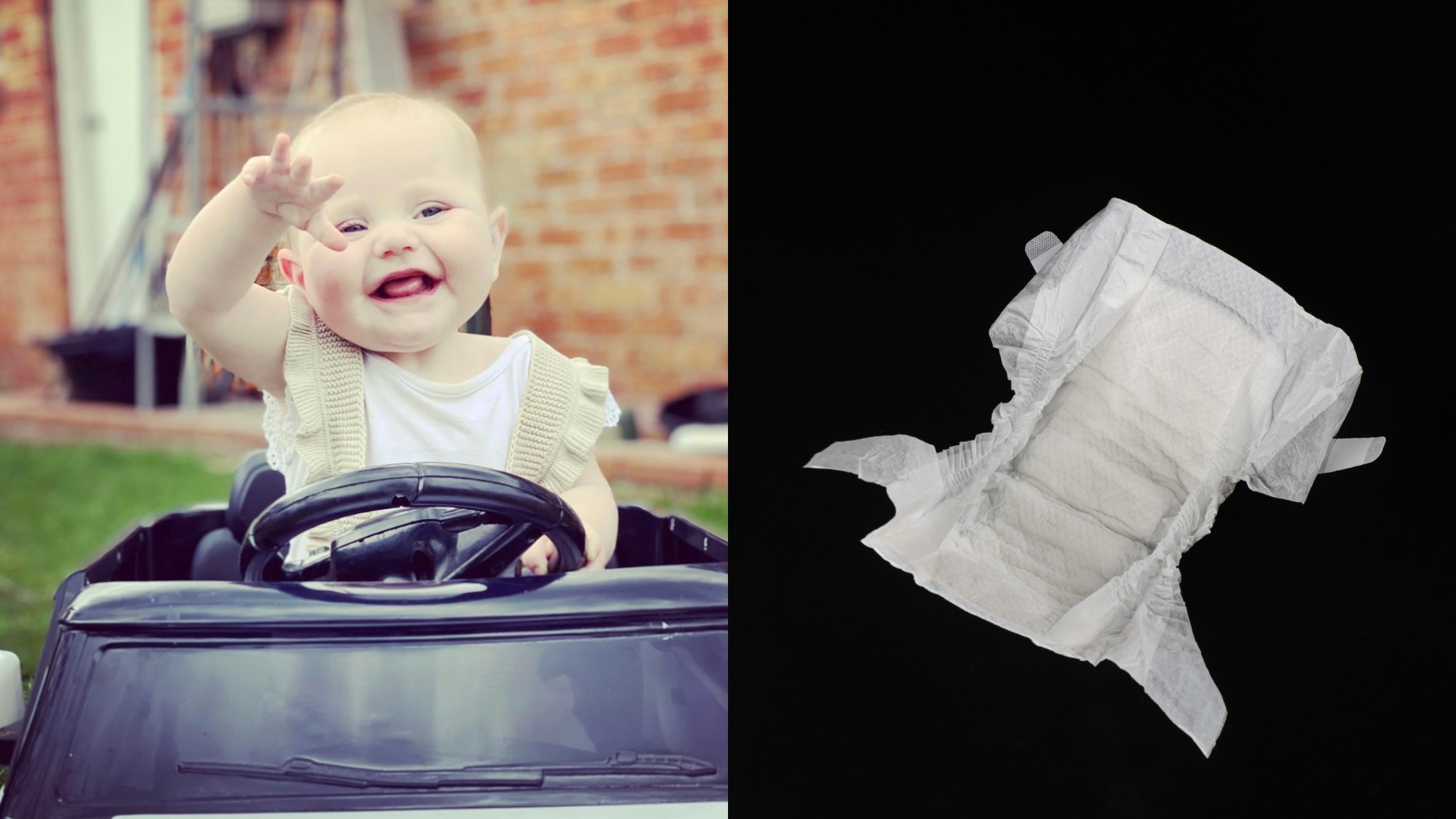
When a mother goes to change her baby's diaper, she's usually pretty sure what she'll find. There are very few surprises, but the unexpected can be scary. Case in point: A mother from Australia says she opened her infant daughter's diaper and was terrified when she found it covered in blood.
The mother rushed her to the hospital, thinking something was seriously wrong. She was shocked by what doctors discovered.
The baby was healthy.
Sarah Regan, 38, dutifully cared for 9-month-old Birdie, who she believed was perfectly healthy. Doctors began to run tests when she and the baby arrived at the emergency room, according to the New York Post.
There were ultrasounds, hormone tests, and an X-ray of the baby's wrist. During testing, doctors found that her bones were advanced to that of an 18-month-old. Regan didn't understand what any of this had to do with a bloody diaper.
Doctors made a strange diagnosis.
"That was her first period," the puzzled mom from Sydney told Kennedy News, per the Post. "I didn't know what to think, we didn't know much about it and we'd never heard of it before."
Birdie was experiencing "precocious puberty" before she was even able to walk or talk. It's a rare condition. Puberty is considered precocious when it occurs before the age of 7 or 8 in girls and before age 9 in boys, according to KidsHealth.
Birdie is now 2.
Regan explained that Birdie is now 2 years old, and it is still difficult to tell if she experiences mood swings or period pain because she is still so young. "She doesn't have pubic hair or breasts, which some children with the condition can get," Regan said.
Regan's other two children have not experienced precocious puberty, but she feels as if she is always talking about Birdie's condition to someone, according to the Post.
"When she goes to day care I felt like I had to explain that if they find blood in her nappy that's why and we have a doctor's note to ensure no one becomes concerned about it," she revealed. "That's our biggest hurdle with her."
But she contends that it is crucial people are educated and do not ignore blood in their children's underwear. "I also don't want people to become complacent. If blood is found in an infant's underwear it has to be investigated," she told Kennedy News.
Birdie's symptoms are not consistent.
Birdie has not experienced heavy bleeding since her first period in the emergency room. Instead, she has had intermittent spotting. It isn't monthly, and there can be long stretches between bleeding. Regan admitted that makes things difficult to track.
Regan worries about Birdie's physical development.
Because precocious puberty can cause early physical development, Regan has increased concerns for Birdie. She wants her to have a typical childhood and be like other kids, but she's not sure if that will be possible.
"As her mom I hope it doesn't affect her appearance and growth more than any other child her age," she explained. "If we need hormone therapy then we'll do it, I just don't want it to make her different."
Right now, she looks like every other almost 3-year-old toddling around.
"She's a normal girl, she's almost 3, she's having tantrums," Regan said. "She's normal, you wouldn't know. Appearance wise you wouldn't know the difference because we're on top of it."
Precocious puberty is rare.
KidsHealth explains that precocious puberty is uncommon and not usually caused by other underlying medical problems or triggers. It happens when the brain prematurely sends signals to the pituitary glands to release hormones. Precocious puberty, however, does run in families.
Rarely, precocious puberty occurs because of a tumor or problems with thyroid function. It is less common in boys and is generally related to another medical problem.
Treatment for the condition is available.
Patients generally see an endocrinologist to treat precocious puberty. There are ways to stop or reverse sexual development and bone maturation. This is done through hormone treatments, KidsHealth explains. It suggests that parents be frank with their children to help them understand what is happening to their bodies.
"Give your child a simple, truthful explanation about what's happening. Explain that these changes are normal for older kids and teens, but that his or her body started developing a little too early," the site suggests. "Keep your child informed about treatment and what to expect along the way."




